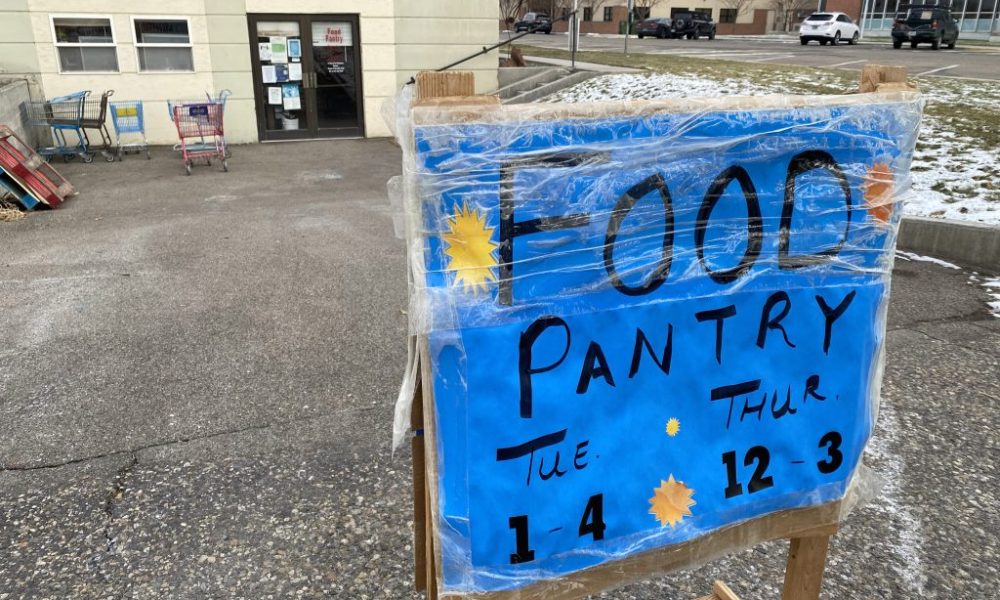As hundreds of thousands of Oregonians face a 40% decrease in their food budgets, Gov. Tina Kotek urged the Legislature to give millions to the Oregon Food Bank.
The federal Supplemental Nutrition Assistance Program, or SNAP, covers more than 720,000 Oregonians. When the COVID pandemic hit in spring 2020, the federal government increased monthly SNAP benefits, to an average of $450 per household each month.
The emergency funding ended in February, slicing aid to households receiving benefits to an average of $270 per month. Local food pantries and the Oregon Food Bank, which serves 1,400 free food markets, pantries, meal sites and delivery programs, have been preparing for increased demand.
Kotek, who started her career as an advocate at the Oregon Food Bank, sent a letter to the chairs of the budget-writing Joint Ways and Means Committee this week asking for an immediate $7.5 million allocation to the Oregon Food Bank for food purchasing.
“Without an immediate investment, Oregon Food Bank will be forced to reduce the level of food support it provides to its regional food banks, and local food pantries will be unable to feed Oregonians who need help,” Kotek wrote.
The proposed $7.5 million is included in a 42-page amendment to the Legislature’s “budget rebalance” bill, a wonkish measure the Legislature passes every two years to reconcile the state’s accounts. The bill will be considered by a subcommittee of the budget-writing Joint Ways and Means Committee on Friday and by the full Legislature later this month.
Oregon Food Bank CEO Susannah Morgan told the Capital Chronicle the money would be enough to ensure the nonprofit can purchase enough food through the end of June. The food bank is also anticipating more federal aid later this spring or summer, as the U.S. Department of Agriculture spends $2 billion announced last fall to buy domestically produced food for food banks and school meal programs.
“Part of our hope for the summer would be that the federal commodities will start flowing in at a higher rate again as we are finishing up spending the additional very welcome grant from the state of Oregon,” Morgan said.
The legislative Emergency Board gave the food bank $5 million last September, but that money’s gone. Like consumers who have grappled with higher prices at grocery stores in recent years, the Oregon Food Bank is paying more for food than it did before the COVID pandemic.
“Pre-pandemic, a 40,000-pound truckload of peanut butter, a whole lot of peanut butter, would have cost $32,000,” Morgan said. “It’s now costing us over $40,000.”
Morgan said the food bank hasn’t seen an increase in demand because of the end of expanded SNAP benefits, but that officials expect increases in the second or third week of March. People typically ask for food assistance when SNAP benefits run out part way through the month, she said.
Eighteen states, mostly Republican-run states in the South, Midwest and Mountain West, already opted out of the additional federal funding. Food banks in those states reported a surge in demand when the extra benefits ended.
Morgan said the most important thing Oregonians can do is make sure their friends, family and neighbors know how to find resources at oregonfoodfinder.org. After that, the food bank is seeking monetary donations, which go further than food donations because the food bank buys food by the truckload and can turn $1 into three meals worth of food. Volunteering time at a local food pantry or regional food bank also helps, she said.
“This grant from the state of Oregon is amazing and really will help us get through June,” Morgan said. “The need will not go away in July. Our neighbors will still need help in July.”
Oregon Capital Chronicle is part of States Newsroom, a network of news bureaus supported by grants and a coalition of donors as a 501c(3) public charity. Oregon Capital Chronicle maintains editorial independence. Contact [email protected]. Follow Oregon Capital Chronicle on Facebook and Twitter.

Julia Shumway is deputy editor of Oregon Capital Chronicle and has reported on government and politics in Iowa and Nebraska, spent time at the Bend Bulletin and most recently was a legislative reporter for the Arizona Capitol Times in Phoenix. An award-winning journalist, Julia most recently reported on the tangled efforts to audit the presidential results in Arizona.









